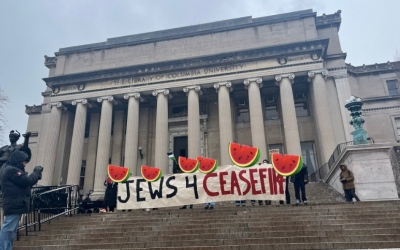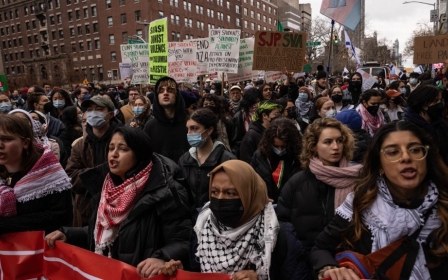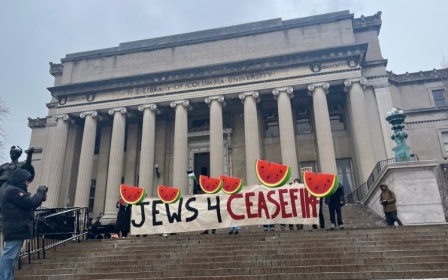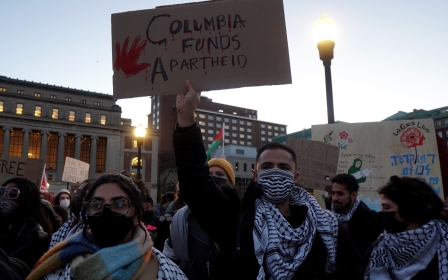Columbia University sued over suspension of Palestinian and Jewish student groups
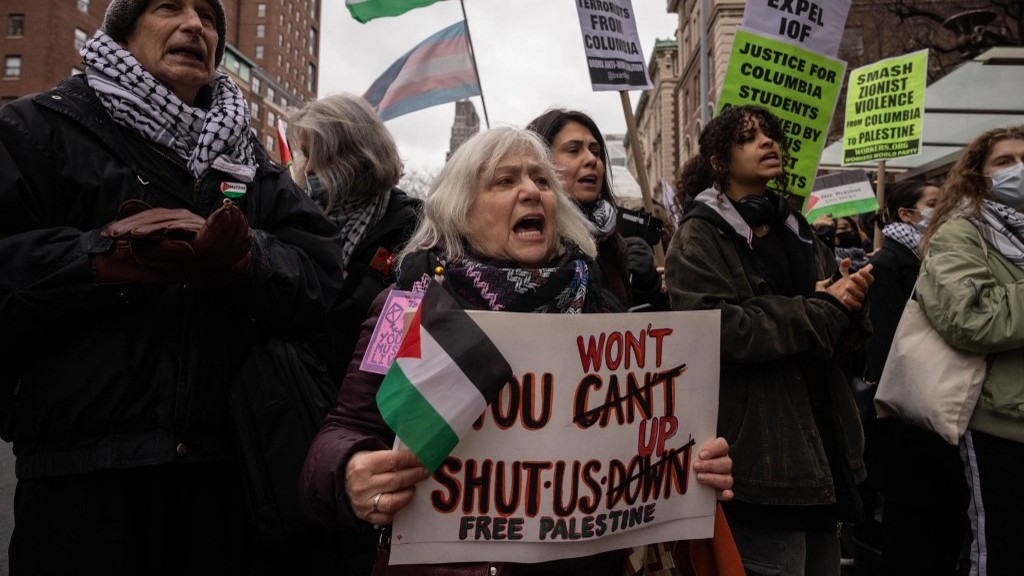
The New York Civil Liberties Union, in collaboration with Palestine Legal, filed a lawsuit against Columbia University on Tuesday for the suspension of the Students for Justice in Palestine (SJP) and Jewish Voice for Peace (JVP) chapters.
“For decades, Columbia students have been at the forefront of speaking out against segregation, war and apartheid and SJP and JVP sit squarely in this tradition," Palestine Legal senior staff attorney Radhika Sainath said.
“Universities must abide by their own rules and may not punish student groups speaking out for Palestinian rights in the moment when they are most essential – even if donors and lobby groups complain."
Columbia University, based in New York City, suspended the student groups in November.
Explaining the decision, Columbia's special committee on campus safety described the groups as having "repeatedly violated university policies related to holding campus events, culminating in an unauthorised event Thursday afternoon [9 November] that proceeded despite warnings and included threatening rhetoric and intimidation".
The ban means that the two groups would neither receive university funds to operate nor be allowed to conduct any activities on campus.
On 29 February, the New York Civil Liberties Union sent a letter to Columbia University's administration.
The letter demanded the immediate reinstatement of both the SJP and JVP chapters.
It highlighted that the university had unfairly and unlawfully suspended the groups for their involvement in a peaceful demonstration and a temporary art exhibit advocating for Palestinian rights.
According to the lawsuit, on multiple occasions the university breached its established protocols to penalise SJP and JVP, "baselessly and irresponsibly" attributing allegations of threats and intimidation to the groups.
This has led to serious worries that the university's decisions were improperly influenced by the political viewpoints of the student organisations, particularly their advocacy for Palestinian rights, the lawsuit says.
“Ivy League institutions should not attract students who value justice and equality if they do not want to be held accountable for the ideals that they claim to uphold," Maryam Alwan, an organiser with Columbia’s chapter of SJP, said.
"As a Palestinian-American student, I should have the same right to speak out on my campus as everyone else - and no amount of targeted policy changes or illegitimate suspensions will prevent us from advocating for the Palestinian people.”
Fighting back
Columbia is the latest school to be hit with a lawsuit, but not the only one. On Friday last week, a group of faculty members at the University of Pennsylvania sued the university to stop the school from complying with a request from Congress to hand over all material, teaching or otherwise, related to pro-Palestinian activity and sentiments on campus.
It comes after the presidents of the University of Pennsylvania, Harvard University and the Massachusetts Institute of Technology (MIT) were called in for a contentious congressional briefing in December over the large number of pro-Palestine rallies taking place on campus.
Since that hearing - in which the protests were characterised by unchecked claims of being sympathetic to Hamas and calling for violence against Jews - the presidents of both Harvard and Penn resigned.
In January, the House Committee on Education and the Workforce issued a series of letters to Harvard, Columbia, MIT and Penn, requesting they provide the committee with documents related to the schools' "response to antisemitism on its campus".
"The Committee is engaged in a partisan witch hunt by seeking syllabi, academic papers, and other material from Penn faculty of all ranks, with the search highlighting keywords like Jew, Israel, antisemitism, Palestine, Gaza, resistance, settler colonialism and diversity, equity and inclusion, to name most of their criteria," the Penn Faculty for Justice in Palestine (PFJP), a group of faculty, staff and graduate students, said in a statement shared with Middle East Eye.
The legal complaint was filed last Friday by the PFJP and seeks an injunction that would bar Penn from sharing the information with Congress, which the lawsuit states includes "student information by Penn deemed confidential" under federal law.
"Penn's compliance with the Committee's letter threatens the privacy, safety, academic freedom and careers of the individual plaintiffs and of many other members of the Penn Faculty for Justice in Palestine," reads the lawsuit.
Middle East Eye propose une couverture et une analyse indépendantes et incomparables du Moyen-Orient, de l’Afrique du Nord et d’autres régions du monde. Pour en savoir plus sur la reprise de ce contenu et les frais qui s’appliquent, veuillez remplir ce formulaire [en anglais]. Pour en savoir plus sur MEE, cliquez ici [en anglais].


